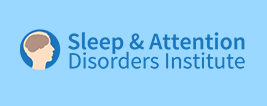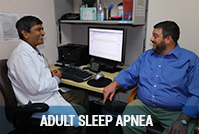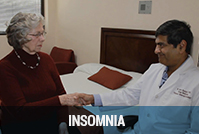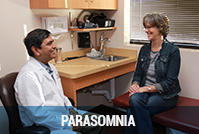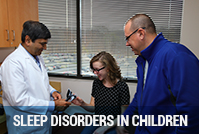Continuous Positive Airway Pressure (CPAP) is a small machine worn at night. It pushes air into the nose and keeps the throat open. A mask or nasal pillow placed on the face or nose prevents leak. These machines have become quite small. They sound like a fan. There are lots of masks and nasal pillows. They may cover just the nostrils, the nose, or the nose and mouth. A comfortable one is easy to find. CPAP is the best treatment for sleep apnea. It works in almost 100% of patients. However, it has to be used regularly.
The best way to find the right pressure for your CPAP is an overnight test at the Sleep & Attention Disorders Institute. Dr. Sangal will find the best mask and pressure setting that works best for you. When the pressure is too high, it’s hard to keep the CPAP on. Sleep gets interrupted. It may also cause central sleep apnea. When the pressure is too low, the sleep apnea isn’t managed properly. We will find the right pressure for you. We will find a mask that is comfortable and control any leaks.
If you’ve heard negative things about CPAP from friends or family members, rest assured your experience will be different when you are working with Dr. Sangal. First, CPAP equipment has changed over the years. Face masks are smaller and less intrusive. CPAP machines are much quieter now than older models even a few years ago were.
Most importantly, few other physicians work with patients as closely as Dr. Sangal to help them use CPAP. He will find and trouble-shoot any problems preventing you from using CPAP. If you are congested, he will treat that. If you are having trouble with the mask, the suppliers he uses will work with you to find one you are comfortable with. If you are finding the pressure a problem, he will re-adjust it. If you are having difficulty sleeping with the CPAP, he will use non-addicting medicines to help you sleep with it. In general, it is reported only 59% of patients use CPAP regularly. 90 percent of Dr. Sangal’s patients use their CPAP machines regularly with his help.
Auto-adjusting Positive Airway Pressure (APAP) is like CPAP. However, instead of Dr. Sangal determining the best pressure you should use, a computer adjusts the pressure throughout the night. It does this based on incomplete information. Airflow is normally quite irregular. To decide when you are breathing abnormally in sleep (having sleep apnea) we have to monitor not just airflow, but also breathing effort and oxygen saturation. APAP monitors only airflow, not effort or oxygen saturation. Based on incomplete information, it raises and lowers the pressure again and again all through the night. So, part of the night the pressure may be too low and you still have sleep apnea, low oxygen, and related symptoms. In other parts of the night, the pressure gets too high, and there is more discomfort, higher leaks, and arousals. The higher pressure may wake you up and you may take it off and fall back to sleep. Thus, too much pressure makes it hard for patients to use it regularly. Too much pressure can also cause central sleep apnea. The human body also adjusts to things that are constant (like CPAP), and gets used to such things. We have more difficulty adjusting to anything that is constantly changing, such as APAP. Many insurance companies require that APAP be tried unsuccessfully before switching to CPAP. If APAP seems to work, the patient stays on it. But, it is not unusual for patients to have difficulty tolerating APAP or continue to have symptoms on APAP. In that case, these insurance companies will allow us to bring you in at night and find the right pressure (CPAP) for you. Your APAP machine can then be set to CPAP mode.
Bi-level Positive Airway Pressure (BPAP) is like CPAP. When you breathe in, the pressure increases (IPAP). When you breathe out, the pressure decreases (EPAP). It is good for breathing failure. It has a limited role in sleep apnea. People who are unable to breathe out against the pressure of CPAP sometimes can use BPAP. However, BPAP is more likely to cause central apnea.
Adaptive Servo-Ventilator (ASV): It is like CPAP. It adjusts three pressures through the night. It is used if you develop central apneas with CPAP or BPAP. This is called complex sleep apnea.
